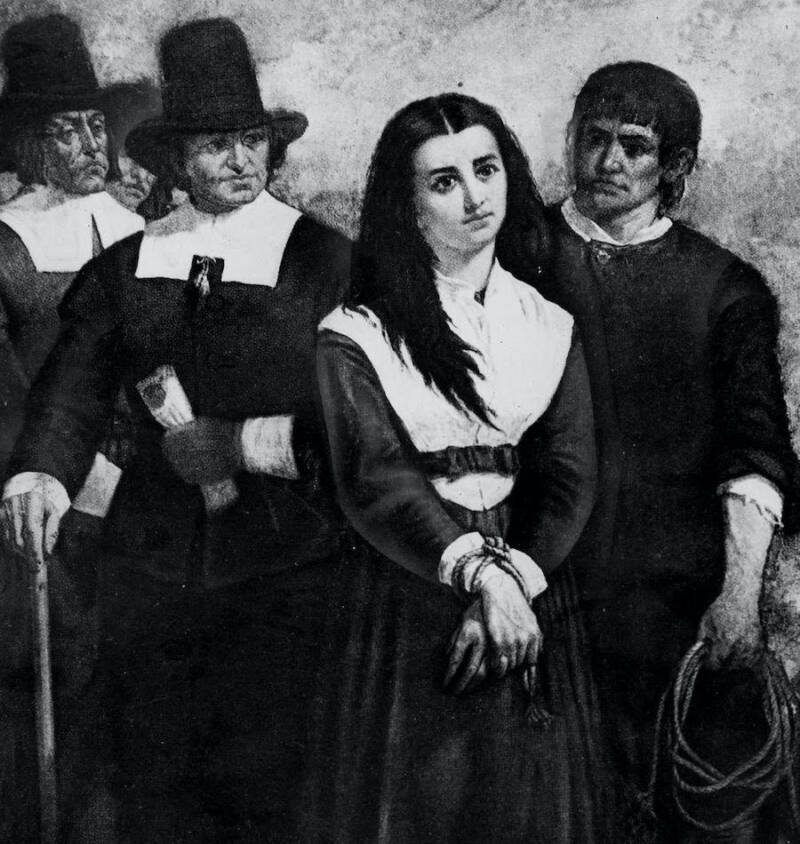Teen Angst And Patriarchal Oppression

Wikimedia CommonsAn alleged witch is led to her execution in Salem, Massachusetts.
Some of the first people who accused others of being witches in Salem were very young girls. And many accusers that followed were teenagers or in their early 20s.
Of course, it wasn’t just young people who were making claims about alleged witches. But the fact that their accusations were so prominent early on have led some to believe that simple teenage angst may have been a factor that led to the Salem witch trials.
In the book Entertaining Satan: Witchcraft and the culture of Early New England, John Putnam explores the idea that the witch trials were essentially a teenage rebellion against the Puritan authority of the older generation. After all, most of the people accused of being witches were adults.
If teen angst truly inspired young women to make these accusations, then these feelings could have very well stemmed from the patriarchal oppression of the time. But whether that was true or not, older women often bore the worst effects of this oppression during the actual trials.
Some feminist historians have interpreted the Salem witch trials as just another way that the patriarchy persecuted women who acted in ways that were different from the accepted social norms of the time.
As was the case with many similar witch hunts in Europe, women were the primary targets of accusation during the Salem witch trials – particularly women who acted unusually for the era.
While the exact cause of the Salem witch trials remains contested, there is almost no doubt that underlying social forces played a role.





